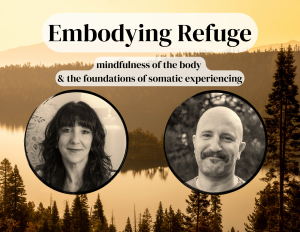Let’s be honest. We are here because life has been difficult. This isn’t to say that life hasn’t also been beautiful and joyful and meaningful, but we don’t become seekers unless, deep down, we realize that something has been missing.
The self help and New Age sections of our swiftly shuttering bookstores are testaments to humanity’s suffering and seeking. For one reason or another, we find ourselves here. With the Dharma. Some of us may have committed to the Dharma, and some of us may simply be checking it out. That’s fine.
Either way, it has spoken to us.
The longer it speaks to us the more we come to realize that practicing the Dharma is no quick fix. No instant gratification. There is no weekend workshop that guarantees a final end to suffering. No silent retreat that promises a stress-free life. No meditation that just fixes everything. Nope. Practicing the Dharma is hard work.
So why do it, then? Because it works. And it works in direct proportion to the amount of effort and energy we put into it.
Have you every heard the phrase, “Dirty hands, clean money”? It comes from the trades and refers to the idea that we can be proud of what we’ve earned so long as it was earned honestly and diligently. Eight hours of hard work, eight hours worth of earnings. The Dharma is no different. When we put sincere effort into the practice, results will follow.
One meditation at a time. One act of kindness at a time. One act of restraint at a time. One moment of renunciation at a time.
The joyful, contented, and meaningful life we all seek isn’t handed to us. It isn’t something we get by reading one book or listening to one inspiring lecture. We have to build it. We have to get our hands dirty, consistently. We have to spend time on the cushion and we have to spend time in community. We have to be willing to fail and we have to be willing to learn.
We aren’t monks or nuns. We aren’t saints. We aren’t enlightened. There may come a day when some of us become all of those, but, for now, we’re part of the lay sangha. We’re householders. We have jobs, bills, and families. Fortunately, the Dharma is for us, too.
Let’s awaken together. Let’s get our hands dirty. Nothing worth its salt comes easy.





